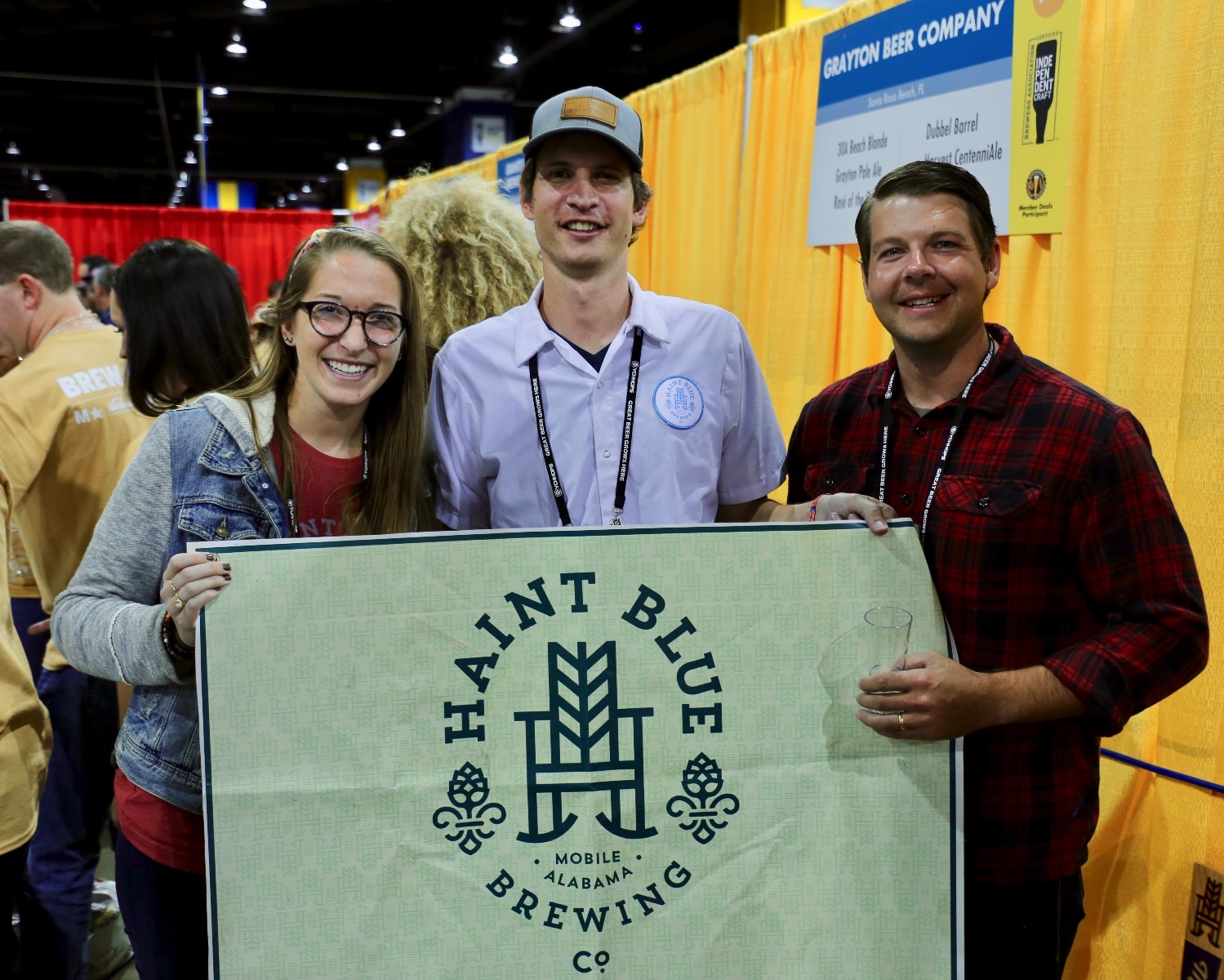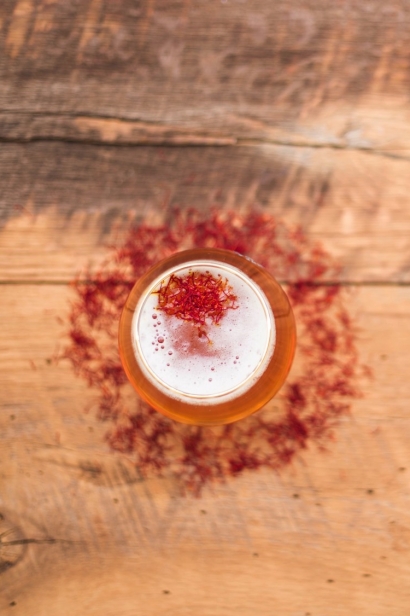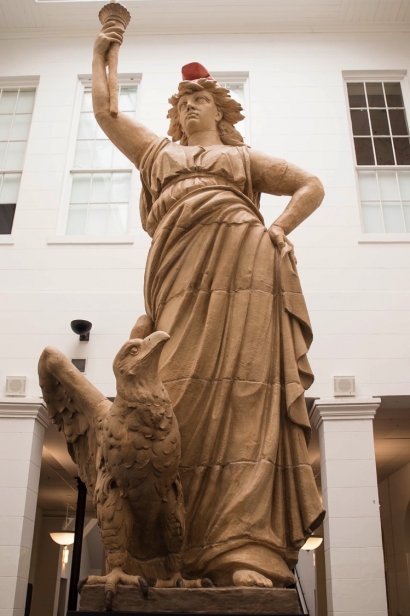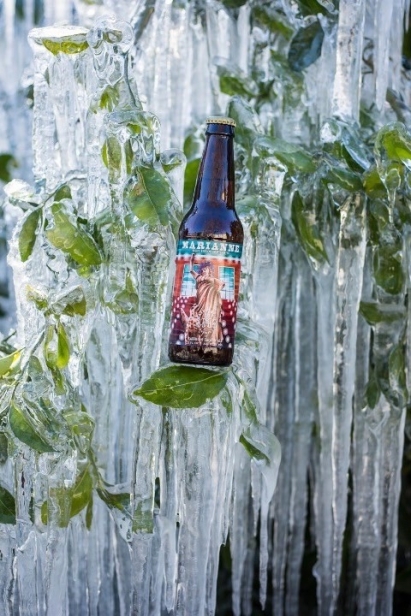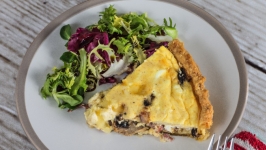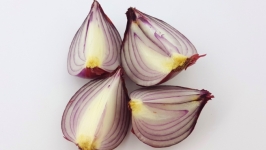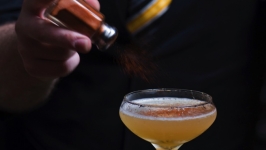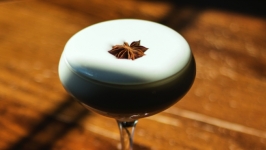Haint Blue Brews Beer that 'Fights Terrorism'
Keith Sherrill’s ears perked up when he overheard a conversation about importing saffron from Afghanistan.
The founder of Haint Blue Brewing in Mobile had done multiple tours of Afghanistan during his 15-year career in the army. So while sitting in a business class at Stanford University in 2016, a nearby discussion about the country’s cash crop caught his attention.
Saffron, the most expensive spice in the world, grows well in Afghanistan. Sherrill’s classmate, a fellow U.S. veteran, reasoned that connecting Afghan saffron growers to the world market would incentivize them to grow the spice instead of poppy, which is used to make heroin.
Poppy profits often benefit warlords and terrorist groups. The global spice trade, however, could empower Afghan farmers and improve rural economic development.
Sherrill, who performed civilian medical evacuation missions in Afghanistan, had received a close perspective on the Afghan people, and he still wanted help them. He jotted down the name of the budding saffron company—Rumi Spice—in his notebook.
“Can I put saffron in beer?” he wondered.
Two years later, Haint Blue is brewing a unique saffron saison beer. And the brewery is buying its spice supply from none other than Rumi Spice.
“Saffron actually earns famers more than poppy, so we’re giving them real options,” Sherrill says. “This is what I like to think of as the good of capitalism.”
The beer is named Marianne after the “Goddess of Liberty,” a statue of which once stood atop the 1889 Mobile County Courthouse. The torch-waving statue now resides in the History Museum of Mobile. Her visage is also on the bottle’s label.
Marianne is more savory than a typical saison, and the saffron—a dry flavor reminiscent of paella—lingers with you in the finish.
Today, the beer has a solid 3.61-star rating on the respected brew-review website untapped.com. It is sold in more than 100 locations across Lower Alabama, and a portion of sales are donated to Save A Warrior, an organization that helps veterans recover from post-traumatic stress.
“We want to bring Mobile to the world, through beer distribution, through our story,” he says. “But I think there’s also an opportunity to bring the world to Mobile. Our saffron saison ties my past with Haint Blue Brewing Company’s future.”
Raised in Montgomery, Sherrill joined the army in 2002, serving as an Army Ranger and deployed to Iraq and Afghanistan. In 2009 he earned his wings as a helicopter pilot, flying Blackhawks and Chinooks.
Like many veterans, he found difficulty adjusting to life after the military. He says there was a hole in his heart that he needed to fill. “I had to ask, what do I do at this point?” he says.
The answer came from the culture of microbreweries in the Pacific Northwest, where he was last stationed. The creativity and technical skills of brewing caught his attention, as did the community of devotees who support it. When he and his wife moved to Mobile in 2016, he brought this passion for what he calls “the artistic side of beer” with him.
He and his hobbyist brewer brother-in-law, Matt Wheeler, began experiments in Sherrill’s garage. The experiment grew into a business plan, a successful crowdsourcing fund drive and the purchase of the old Crystal Ice warehouse in Mobile, where Haint Blue plans to open a brewery and taproom this summer. (Haint Blue beer is currently brewed in Mississippi.)
Amid all of this action, Sherrill held onto the idea of a saffron beer. He asked his head brewer and resident mad scientist, Wheeler, to experiment with the ingredient. The first creations had some rather unmarketable traits.
“It was this florescent green color,” Sherrill says. “It tasted good, but I thought it might turn us into superheroes.”
Cutting back on the saffron helped dial in the color and curb the cost of the brew. With a sellable product in hand, Sherrill placed his order with Rumi Spice and its network of Afghan farmers. He began selling it this spring, billing it as a beer that "fights terrorism."
For Sherrill, the uncommon brew is an apt blend of his new life at the brewery and his former one as a soldier.
“I was looking for another way to serve,” he says. “And it turns out that putting saffron in beer was a way I could do that.”


